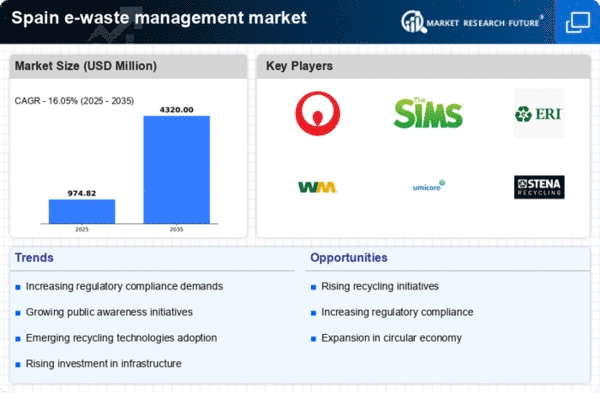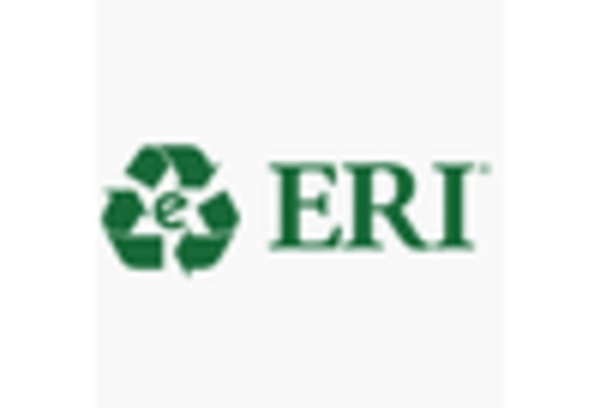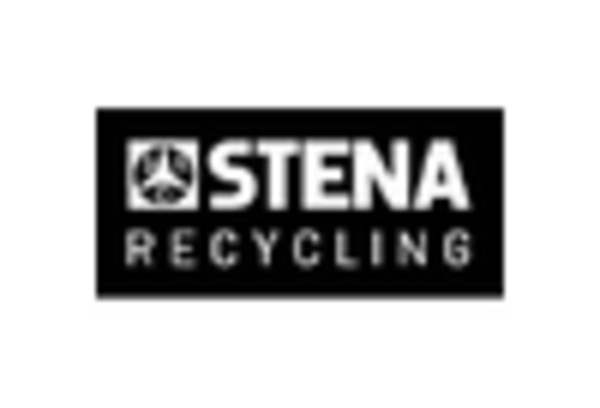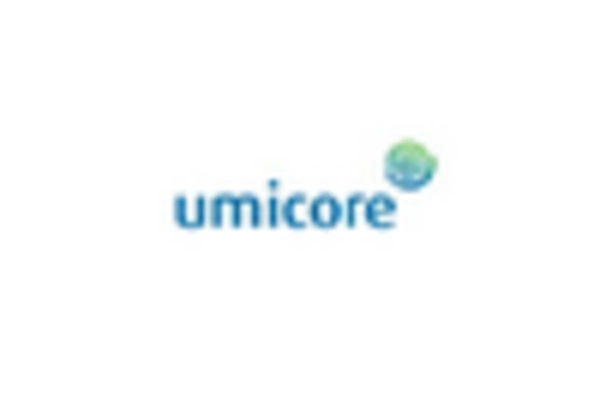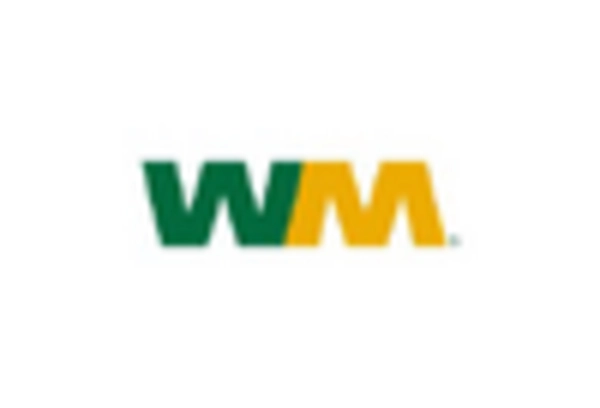Rising E-Waste Generation
The e waste-management market in Spain is experiencing a notable increase in the volume of electronic waste generated. With the rapid adoption of technology, it is estimated that e-waste generation in Spain could reach approximately 1.5 million tonnes annually by 2025. This surge is driven by the proliferation of consumer electronics, including smartphones, laptops, and household appliances. As a result, the demand for effective e waste-management solutions is intensifying. The Spanish government has recognized this trend and is implementing policies to enhance recycling rates and promote responsible disposal. The growing awareness of environmental issues among consumers further fuels the need for efficient e waste-management practices, indicating a robust market potential for service providers in this sector.
Collaboration with Private Sector
The e waste-management market in Spain is witnessing a growing trend of collaboration between public entities and the private sector. Partnerships are being formed to enhance the efficiency of e-waste collection and recycling processes. These collaborations often involve sharing resources, expertise, and technology, which can lead to improved operational efficiencies. For instance, local governments are working with private recycling firms to establish more accessible collection points for e-waste, thereby increasing participation rates among consumers. This synergy not only streamlines the e waste-management process but also contributes to the overall growth of the market by fostering innovation and expanding service offerings.
Government Initiatives and Policies
The e waste-management market in Spain is significantly influenced by government initiatives aimed at promoting sustainable waste management practices. The Spanish government has introduced various regulations and incentives to encourage the proper disposal and recycling of electronic waste. For instance, the Extended Producer Responsibility (EPR) framework mandates manufacturers to take responsibility for the entire lifecycle of their products, including end-of-life disposal. This policy is expected to increase the recycling rate of e-waste to 65% by 2025. Additionally, public awareness campaigns are being launched to educate citizens about the importance of e waste-management. These initiatives not only enhance compliance but also stimulate market growth by creating a more structured approach to e waste disposal and recycling.
Technological Innovations in Recycling
Technological advancements are playing a crucial role in shaping the e waste-management market in Spain. Innovative recycling technologies, such as automated sorting systems and advanced shredding techniques, are being adopted to improve the efficiency of e-waste processing. These technologies can potentially increase recovery rates of valuable materials, such as gold and copper, from electronic devices. The market is witnessing investments in research and development to enhance these technologies, which could lead to a more sustainable and profitable e waste-management industry. Furthermore, the integration of artificial intelligence in recycling processes is expected to optimize operations and reduce costs, thereby attracting more stakeholders to the market.
Growing Consumer Demand for Sustainable Practices
There is a rising consumer demand for sustainable practices within the e waste-management market in Spain. As environmental consciousness increases, consumers are becoming more inclined to choose services that prioritize eco-friendly disposal and recycling methods. Surveys indicate that approximately 70% of Spanish consumers are willing to pay a premium for services that ensure responsible e-waste management. This shift in consumer behavior is prompting businesses to adopt greener practices and invest in sustainable technologies. Consequently, the e waste-management market is likely to expand as companies align their operations with consumer expectations, fostering a culture of sustainability and responsible consumption.


